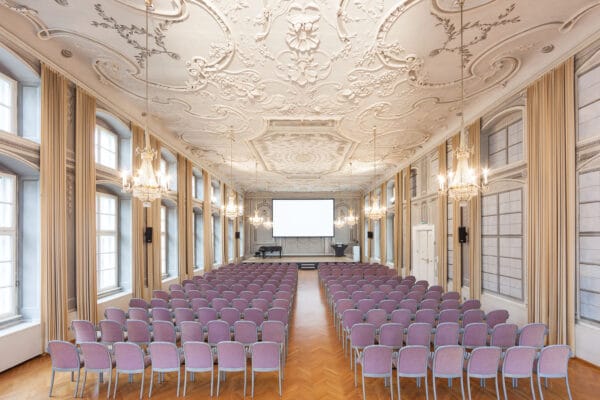
NAME:
Theologie - KLS
BUILDING:
Theologie
FLOOR:
2
TYPE:
Lecture Room
CAPACITY:
173
ACCESS:
Only Participants
EQUIPMENT:
Beamer, PC, WLAN (Eduroam), Overhead, Handicapped Accessible, LAN, Microphones, Light Installation, Sound System, Speaker Desk
In the context of long-term socio-ecological research (LTSER), a systematic observation and analysis of changes in socio-ecological systems is conducted over extended periods. The diverse research projects undertaken in LTSER platforms depend on repeated engagement of various actors. The involvement of non-academic actors in scientific research processes harbours many challenges, one of which is ‘stakeholder fatigue’. To tackle this and other challenges, it is necessary to explore the factors that facilitate or hinder engagement in research processes and formulate proposals for designing research processes so that stakeholders from both academic and practical backgrounds are willing and able to maintain their commitment. This work addreses the following research questions: What are the prerequisites for a successful long-term relationship between actors from science and practice in participatory research like LTSER platforms? How does prior involvement in participatory research affect the willingness of actors in a region to participate in further research projects? Which criteria for the future design of participatory research methods and processes can be derived to ensure they remain beneficial and appealing to the relevant actors? These research questions are analysed in the Eisenwurzen LTSER platform, where stakeholders have been actively involved in the development of the platform for over two decades, and have since participated in many individual projects. Semi-structured interviews are conducted with actors from selected projects as well as with key players from the platform. The interviews will be analysed using qualitative content analysis. Criteria and principles from extant literature will be considered to examine their suitability for the repeated involvement of stakeholders in the transdisciplinary research process. The success factors and inhibitors of participatory research processes will be explored, and the impact of projects will be analysed in terms of their contribution to solving the lifeworld problems of the actors involved. Preliminary findings suggest that participants value the opportunities for exchange, networking, and external input offered by engagement in participatory research. This work aims to contribute to the understanding of how to sustain long-term engagement in LTSER platforms and improve the design of participatory research processes to make them more effective and appealing to all stakeholders involved.
